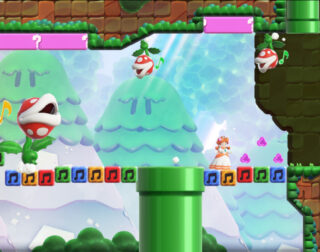Lots of great games, apps, and exercises can help your child to improve Working Memory and Math skills at the same time. Games such as Professor Layton and the Curious Village, apps like Scratch, and digital training programs like Cogmed improve working memory by exercising the brain and literally altering its structure in the areas that manage memory. This type of working memory training can then lead to improvements in mathematical capacities. According to psychologist and researcher Tracy Alloway, visual-spatial working memory “acts like a mental blackboard,” working to support number representation, such as place value and alignment in columns.
Many games and apps task have the potential to help kids improve Working Memory and math skills, but to enhance the benefits, parents should demonstrate ways to directly apply such skills to real life. Integrating the following strategies with digital memory training can enhance the transfer of memory — and by extension, math — skills to a variety of real-world and academic activities.
[cjphs_content_placeholder id=”73534″ random=”no” ]
5 Strategies to Improve Working Memory and Math Skills
1.) Visualize the problem. Practice visualization skills to support visual-spatial and verbal working memory. Research by Tracy Alloway demonstrates that visual-spatial working memory is a crucial component of many higher-order mathematical skills. Visualizing what one has heard may support weak verbal Working Memory and may also provide another access to visuo-spatial Working Memory. Ask your child to create a picture in her mind to represent information what she has just heard or read. Have her draw a picture of the material and explain it. Eventually the goal would be to have her describe the picture she has in her mind rather than needing to draw it. It may be helpful to give her cues to create this mental image such as who, what, where, when, color, size, shape, number, texture, mood, movement, and sound.
2.) Practice, practice, practice. Repeated practice can reduce the strain on working-memory capacity. Strategies that make a process automatic, such as overlearning multiplication tables, reduce the brain’s need to keep things in mind, helping your child to improve working memory and math skills simultaneously. Memorizing or over-learning a task allows individuals to work something out like second nature, which is less taxing and frees up memory capacity. Provide your child with “attention breaks” when she can take a break from the assigned material for a couple of minutes. This could help her to regain focus and not drift off-task, lessening the effectiveness of overlearning. Repeated practice helps one to maintain information, and by practicing and repeating what she has learned, your child will continue to stretch her memory capacities.
3.) Summarize your life. Recount an experience in a concise and orderly fashion. Mathematics requires organization, precision, and keeping track of information, particularly with word problems. Recalling a recent experience can help your child learn to keep information in mind while actively organizing it. For example, you could ask your child to recount her experiences at a soccer game or what she did during a visit to a friend’s house. Asking questions and giving her feedback could encourage her to stay on-topic, be orderly, keep her thoughts connected, and lessen repetition. Parents can model similar descriptions of experiences themselves, pointing out how they report things in an orderly fashion.
4.) Grab the playing cards. Play popular family games such as Uno, Crazy Eights, Memory, and Concentration that require memory and the use numbers, sets, and mathematical concepts. To get the most benefit from this, point out the memory strategies that lead to success in the game. Playing these games can help your child learn to maintain information in mind from earlier in-game experiences, and apply that information when making a decision in the present. Simple games such as Go Fish require players to remember what cards someone asked for earlier in the game so that players know what cards are more likely to be in their opponents’ hands. More complex card games such as Bridge and Pinochle require working-memory skills, counting, and estimation strategies to be successful. Switch games to keep your child’s interest, playing increasingly more complex games as she masters easier ones.
5.) Write it out. Teach your child to write — rather than just remember — math facts and equations. Math word problems are frequently identified as an area of difficulty for individuals with weak working memory skills. However, the simple act of writing down the key components of a word problem circumvents the need to keep too much information in mind. Using some type of graphical representation for math word problems such as numbering steps, arrows that connect information in a meaningful way, or a drawing that summarizes the problem may be very helpful for some children.






In the practice paragraph, you misspelled brain as bain.
Thanks for helping us catch that typo, Mark!
Interesting information.Simplifies the teaching of nathematics.Have used some of the methods and have yielded positive results.
Real world applications can definitely help someone to put it into perspective, especially with things such as math, which surrounds us in everyday life. Great post!
Good idea
I like it
Your advice to us games such as go fish in order to improve your memory, since players have to remember the cards people have asked for, is a great idea. Uses the right training tools and methods would probably be important to make sure you get the most improvement. I’d imagine that researching for training tools that are specifically designed for memory improvement would probably help you find out which ones work and can help you with your math skills as well as anything else you want to work on.